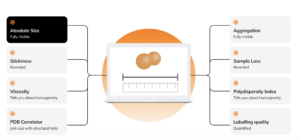
Novo Nordisk Foundation funds Plant2Food with €27m
Danish Novo Nordisk Foundation has invested in Plant2Food, a new open innovation hub for researchers and companies to develop plant-based foods.
The focus of Plant2Food is to create a library of fundamental knowledge about the properties of plants and how they could replace food products that strain global resources, such as meat. It is an open innovation platform, meaning that research results will be made publicly available to create a rapidly growing pool of marketable plant-based foods.
The platform is run at Aarhus University with scientific support from the University of Copenhagen, the Technical University of Denmark and leading goups in the field of vegan proteins in the Netherlands such as Wageningen University. The list of partners is completed by the Food & Bio Cluster of Denmark, a national network of organisations pushing a sustainable and climate-neutral green transition.
The Novo Nordisk Foundation announced its support for the newly launched Open Innovation in Science platform in early November. It is funding this collaborative research effort with up to €27m over the next five years. “We need to rapidly develop food that can feed a growing world population without overusing the planet’s resources. Plant2Food offers a unique opportunity to make Denmark a leader in the development of plant-based foods and to ensure that we harness the enormous potential that already exists in the Danish research community and companies and build networks with the best international experts in the field,” said Claus Felby, Senior Vice President of Biotech at the Novo Nordisk Foundation.
According to the European Circular Bioeconomy Fund (ECBF), vegan protein is the fastest growing sector within the circular bioeconomy, with plant-based based products already generating billions of dollars in sales. However, while plant-based products are perceived by the public as natural, they are often highly processed foods whose long-term effects on human health are currently more theorised than actually known. As Johannes Copton, a member of the Ecoprogressive Network, reported at INDUSTRIA BIOTEC, a process perceived as natural need not be sustainable at all.
A second generation of protein alternatives, derived from industrial waste gases or other wastes and microbially converted in the fermenter, appears to mitigate the effects of CO2 emissions, does not require agricultural use and can therefore contribute to the planting of CO2 sinks such as forests or plants that sequester atmospheric CO2, it was said at the new, lobby-free forum for industrial biotechnology in Berlin in early October.


 Freepik.com
Freepik.com University of Geneva
University of Geneva FIDA Biosystems ApS
FIDA Biosystems ApS